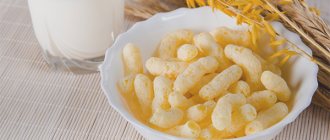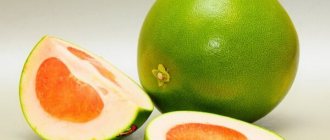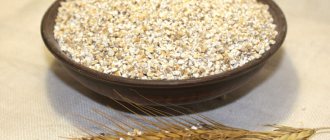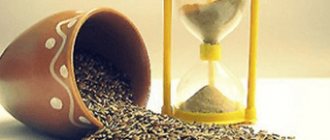Tofu is a controversial product. Some consider it a tasteless curdled mass, while others consider it a real plant storehouse of useful components. From a culinary point of view, this product is universal. Tofu does not have a characteristic taste, it is neutral and literally absorbs the aroma/taste of accompanying ingredients like a sponge.
Soy cheese is a real panacea for vegans and vegetarians. Tofu contains healthy fatty acids, protein, vital vitamins and minerals. But there is no need to eat this product in large quantities, since it is fraught with some danger. Excessive consumption of tofu is fraught with anemia and hormonal disorders.
What is tofu?
Tofu is an ingredient made by curdling soy milk (from soybeans) and then pressing the resulting curd into soft white blocks.
The process of making tofu is relatively similar to how cheese is made from milk. The nutritional value of tofu is impressive - each serving contains large amounts of protein, manganese, calcium, selenium and phosphorus ().
There are also many different types of tofu available, which vary in density and the amount of water squeezed out of it. Here are some of the most common varieties of tofu:
- Soft/silken tofu
- Medium tofu
- Firm tofu
- Extra-firm tofu
- Super firm tofu
Fermented varieties can also be found in some restaurants and specialty stores, although they are less common. For example, marinated tofu, also known as canned tofu or fermented tofu, consists of dried tofu cubes that are allowed to air dry completely and are slowly fermented by airborne bacteria.
Stinky tofu is another type of soft tofu that is fermented in a brine made from vegetables and fish.
Nutritional value, composition and calorie content of tofu
Tofu is an excellent source of protein, along with other key micronutrients such as manganese, calcium and selenium. Each serving of tofu is also low in calories, with only 70 calories per 100 grams.
A 100-gram serving of tofu contains ():
- Calories : 70 kcal
- Carbohydrates : 1.5 grams
- Protein : 8 grams
- Fat : 4 grams
- Fiber : 1 gram
- Manganese : 31% of recommended daily intake (RDI)
- Calcium : 20% of RDI
- Selenium : 14% of RDI
- Phosphorus : 12% of RDI
- Copper : 11% of RDI
- Iron : 9% of RDI
- Magnesium : 9% of RDI
- Zinc : 6% of RDI
- Folate : 5% of RDI
Tofu also contains small amounts of vitamin B6, riboflavin, thiamine, potassium and vitamin K.
Benefits of tofu cheese for women and men
Rich in a variety of nutrients and health-promoting compounds, tofu has many potential health benefits.
Promotes Heart Health
Heart disease is a serious problem worldwide. Improving your diet is one of the most effective ways to reduce your risk of heart disease, and research suggests that soy products such as tofu may be especially beneficial.
Soy isoflavones, which are a type of polyphenol present in tofu, have been shown to reduce markers of inflammation and improve blood flow, which could potentially help protect against stroke.
Increasing your isoflavone intake may also affect some risk factors for cardiovascular disease and may lead to reductions in insulin levels, body weight, and belly fat (, ).
May protect against cancer
Despite tofu's reputation as a cancer-causing ingredient, promising research suggests otherwise. In fact, research suggests that soy consumption may be associated with a lower risk of certain types of cancer, including breast cancer, prostate cancer, and stomach cancer (, , ).
Some studies suggest that tofu may fight cancer due to the powerful soy isoflavones present, but more high-quality research is needed to confirm this.
Even more impressive is one study published in the scientific journal Integrative Cancer Therapies, which notes that these isoflavones may even improve the effectiveness of cancer treatments while relieving some of the side effects associated with chemotherapy and radiation ().
Relieves symptoms of menopause
Menopause is the period in a woman's life that marks the end of the menstrual cycle and is often accompanied by symptoms such as hot flashes, fatigue and night sweats. Although this is a natural process, these symptoms are often treated with supplements, medications, and relaxation techniques such as yoga and meditation.
Some studies suggest that the soy isoflavones found in tofu may also help relieve menopausal symptoms. For example, one study found that soy isoflavone supplements were able to reduce the frequency and severity of hot flashes more effectively than a placebo ().
Similarly, a pilot study in 2012 found that taking isoflavone supplements for 12 weeks reduced menopausal symptoms by 20 and 13 percent among perimenopausal and postmenopausal women, respectively ().
Helps you lose weight
Tofu is low in calories and rich in all nine essential amino acids, which helps promote weight loss. In fact, research shows that eating plenty of protein can help reduce levels of ghrelin, a hormone that is responsible for hunger ().
Interestingly, some compounds in tofu may also help promote weight loss naturally. According to a 2013 meta-analysis conducted in China, soy isoflavone supplementation was effective in reducing body weight and improving blood sugar and insulin levels, which may be helpful in weight control ().
Supports Bone Health
Tofu is an excellent source of several key minerals that play a central role in bone health, including manganese, calcium and phosphorus. All three of these vital nutrients (and many others found in tofu) help maintain skeletal integrity, protect against bone loss, and reduce the risk of problems such as fractures or osteoporosis ().
In fact, some research suggests that soy isoflavones may even have other benefits related to bone health. For example, one review of studies collected and analyzed data from 15 studies and concluded that increased isoflavone intake was associated with higher bone mineral density in certain populations ().
Improves blood sugar control
Recent research has shown that certain compounds in tofu may be associated with lower blood sugar levels. For example, one study found that taking 100 mg of isoflavones daily reduced fasting blood sugar by as much as 15% in just six months ().
Not only that, but isoflavones can also help lower levels of insulin, the hormone responsible for moving sugar from the blood into cells. This may help combat insulin resistance and improve your body's ability to use this hormone more efficiently to maintain better blood sugar control.
Versatile and easy to prepare
There are many options on how to prepare tofu cheese and how to make tofu delicious. Because it absorbs the flavors of any foods, sauces, or seasonings it is cooked with, it pairs well with a variety of dishes.
Salads, stir-fries, and scrambled eggs are a few of the most common dishes you can add tofu to. However, it can also be baked, fried, fried, sautéed or grilled and used in almost any dish.
Be sure to press the tofu for at least 15-20 minutes before cooking - this will help remove excess water, which will improve the texture of the final product. Tofu can also be marinated for up to 24 hours, ensuring that the aroma and flavor are fully absorbed.
Reviews
– I tried tofu at a party, a friend made a Greek salad with it. They say cheese has no taste, but this one was clearly flavored with something. Tastes like asparagus. Did not like.
Victoria, Polevskoy
– I haven’t eaten meat for many years, I prefer soy. I discovered tofu as a rather interesting product, which has a place in soup, as a side dish, and in sweets. My wife bakes this cheese with vegetables, I love how it browns. We are, of course, talking about hard cheese. And the soft one makes a delicious dessert.
Gennady, Moscow
- I love tofu. I have a dairy intolerance. And it became for me an excellent replacement for regular cottage cheese. I eat it with fruit and make fruit and cheese cream. I also like to add it to pureed soup. I buy tofu without additives.
Lydia, Degtyarsk
The unique tofu product is a great find for those who want to eat healthy, eat less meat, but not deprive the body of protein. The beneficial properties of the product help the body to be strong and healthy, if, of course, it is consumed in the required recommended quantity. By following the correct standards, you can diversify the table by preparing delicious and interesting dishes.
Health to you and your loved ones! Natalya Belokopytova.
Side effects and contraindications
Despite the many potential health benefits of tofu, there are several risk factors associated with its consumption.
For starters, most of the world's soybeans are genetically modified. Some people choose to minimize exposure to genetically modified organisms (GMOs) due to concerns about their effects on the human body, antibiotic resistance, and increased risk of food allergies. Choosing organic tofu can ensure that you are getting the highest quality possible while avoiding the consumption of GMOs.
Soy allergies are also incredibly common. If you have a soy allergy, it is very important to avoid tofu and other soy products. Additionally, if you experience any negative symptoms such as hives, rash, or itching after use, discontinue use and talk to your doctor.
Those with a history of hormone-sensitive cancers, such as breast cancer, may want to avoid soy products due to the soy isoflavones they contain, which can mimic the effects of estrogen in the body. However, more and more research has shown that consumption of soy products is not associated with an increased risk of breast cancer ().
In fact, one study published in the journal Nutrition and Cancer even found that regularly eating tofu was associated with a lower risk of breast cancer in premenopausal women ().
The effects of tofu on brain function are also a matter of debate. While some studies believe that phytoestrogens may help improve cognitive function and memory in older adults, a 2008 study concluded that higher tofu consumption was associated with worse memory due to phytoestrogens levels or the presence of potential toxins. Therefore, more research is needed to understand how tofu may affect brain function (,).
Tofu also contains phytates, which are largely responsible for its firm texture. Phytates are a type of antinutrient that can bind to minerals such as calcium and zinc and prevent them from being absorbed into the body. It also contains trypsin inhibitors, which interfere with digestion and protein absorption ().
Luckily, this shouldn't be a concern for most people, as soaking, cooking, and fermenting tofu can significantly reduce the antinutrient content ().
Finally, soy contains goitrogens that can interfere with the production of thyroid hormones. For this reason, it is important to keep your soy intake in moderation and as part of a balanced diet, especially if you have thyroid problems.
Sukhoi
Dry soy cheese is less common than soft and hard cheese, but it has many fans due to its special structure, which resembles ordinary hard cheese, although slightly “rubbery”, and when cut thinly, easily crumbles. The calorie content of tofu, pressed to this state, is 83 kcal/100 g. As a rule, dry cheese is consumed as an independent snack or deep-fried or in batter.
Due to the maximum protein content, such a product is most useful during the period of losing weight and drying the body, especially against the backdrop of high physical activity or intense sports training, it perfectly saturates, provides energy, promotes the growth of muscle mass and the active breakdown of subcutaneous fat.
Summarize
Tofu cheese is a product made by curdling soy milk and pressing the curd into soft white blocks.
Besides being high in protein, tofu is also a good source of manganese, calcium, selenium and phosphorus.
Potential health benefits of tofu for women and men include improved blood sugar control, improved heart health, increased bone strength, aid in weight loss, and protection against certain types of cancer.
On the other hand, most soy comes from GMO crops, is highly allergenic, and contains goitrogens and antinutrients. Some may also avoid soy due to concerns about hormone-sensitive cancers and worsening brain function.
Whether or not you decide to include tofu in your diet, there are many other healthy plant-based sources of protein, including tempeh, natto, and legumes.
General characteristics of the product
Tofu is a soy cheese/curd that comes from Asian culinary tradition. Soybeans are crushed, fresh hot milk and special thickeners are added to combine the masses into a dense substance. Nigari (a special saline solution) is used as a thickener; sometimes oxidizing agents such as vinegar or lemon juice are added. The finished cheese is given the required shape and packaged into briquettes.
Content:
- General characteristics of the product
- Beneficial features
- Chemical composition of the product
- Use in cooking
- Dangerous properties and contraindications
The product has been popular in China for 2000 years. There are few historical facts about tofu; ancient Chinese legends turned out to be more valuable. One of them says that the first tofu was prepared by a Chinese chef by chance. The cook was preparing soybeans, but miscalculated the dosage of nigari and ended up with a curdled mass instead of the intended dish.
Modern tofu has become a global treasure. From rare Asian shops it has migrated to the shelves of every chain supermarket. They sell 2 types of cheese: soft and hard [1]. Their taste is absolutely identical, only the structure and composition differ. For soups, soft cheese is more suitable (it contains more protein), for independent dishes - hard cheese (it contains more protein).
How the product is made
Tofu is made by curdling soy milk protein. In order for the protein to curdle (take on a curd-like consistency), the milk is subjected to heat treatment or filtered. Nigari, citric acid or calcium sulfate are used as a coagulant (an essential substance for coagulation). On the Pacific islands, sea water is used instead of a coagulant. This tofu is called shima tofu (translated as island tofu).
After the protein has curdled, the cheese is pressed and then used for its intended purpose. Ready tofu gets a beautiful milky color, neutral taste and smell. Like other soft cheeses, tofu is packaged in an airtight container filled with water.








